We asked Americans about their spoiler-seeking habits (or lack thereof), how they view the practice, and why people do it. Experts chime in on why America is divided on the issue, with about half seeing the benefit, and the other half saying it’s a bust.
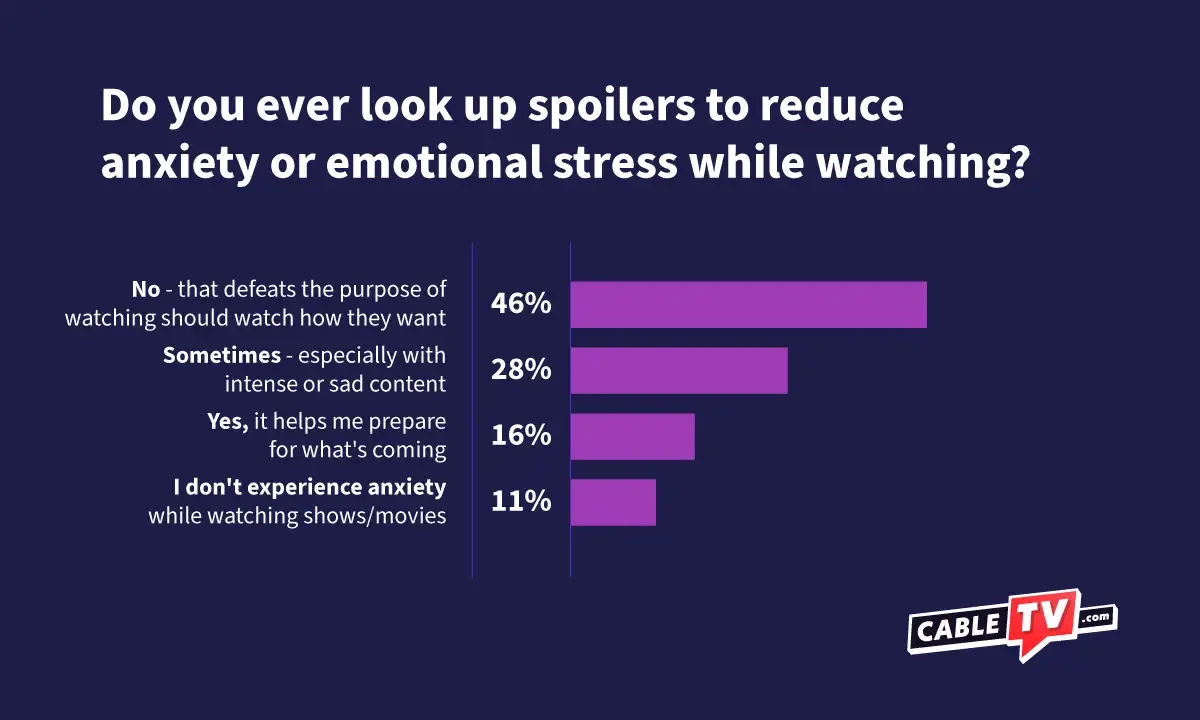
America is divided on seeing spoilers, experts point to deeper meanings
Spoilers might not be a big deal for everyone, but nearly half (46%) of Americans say looking up spoilers for movies or TV shows “ruins the experience” for them. So why do so many people still choose to find out what they’re in for before seeing a movie or TV show?
Some mental health experts, like Brooke Brandeberry, L.M.H.C., C.N., M.S., think, “spoiler-seeking behavior often signals something deeper than just wanting to know what happens.”
In fact, at least 22% of the population says they’ve looked for spoilers specifically to reduce their anxiety and emotional stress.
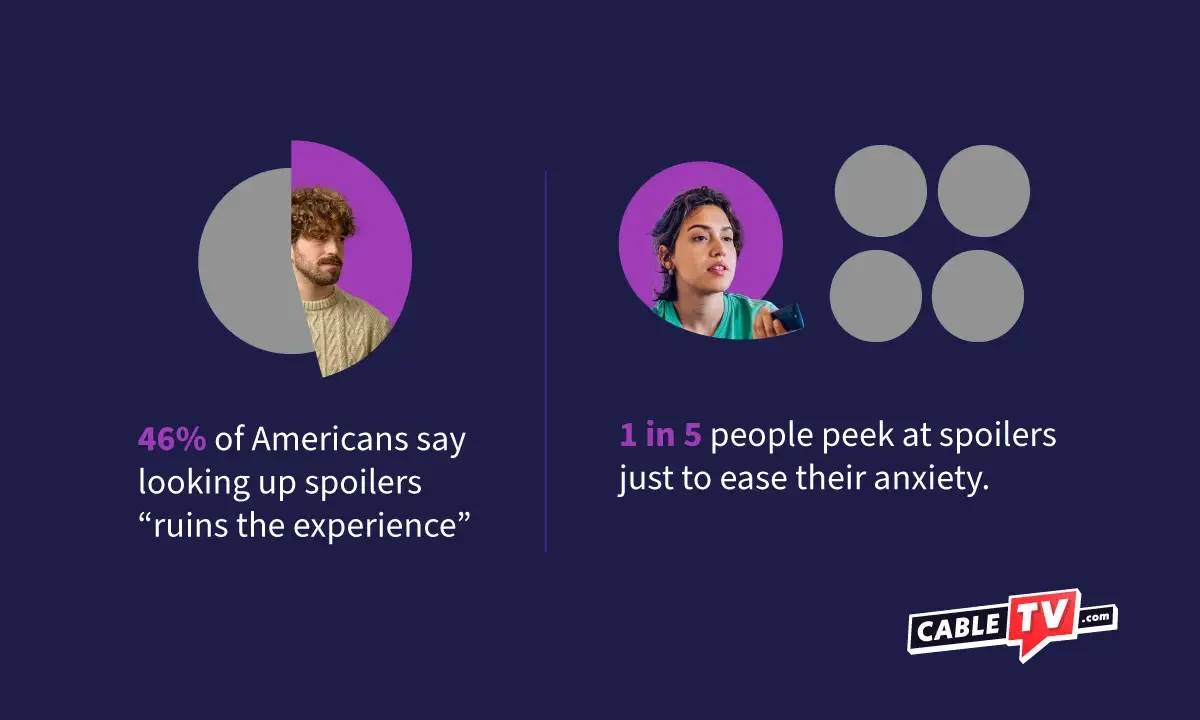
Using expert insight along with national survey data, we’ll help you understand why some people consider spoilers a stain on storytelling while others see preparing for a movie as more important than having a clean-slate experience.
Why do some people look up spoilers?
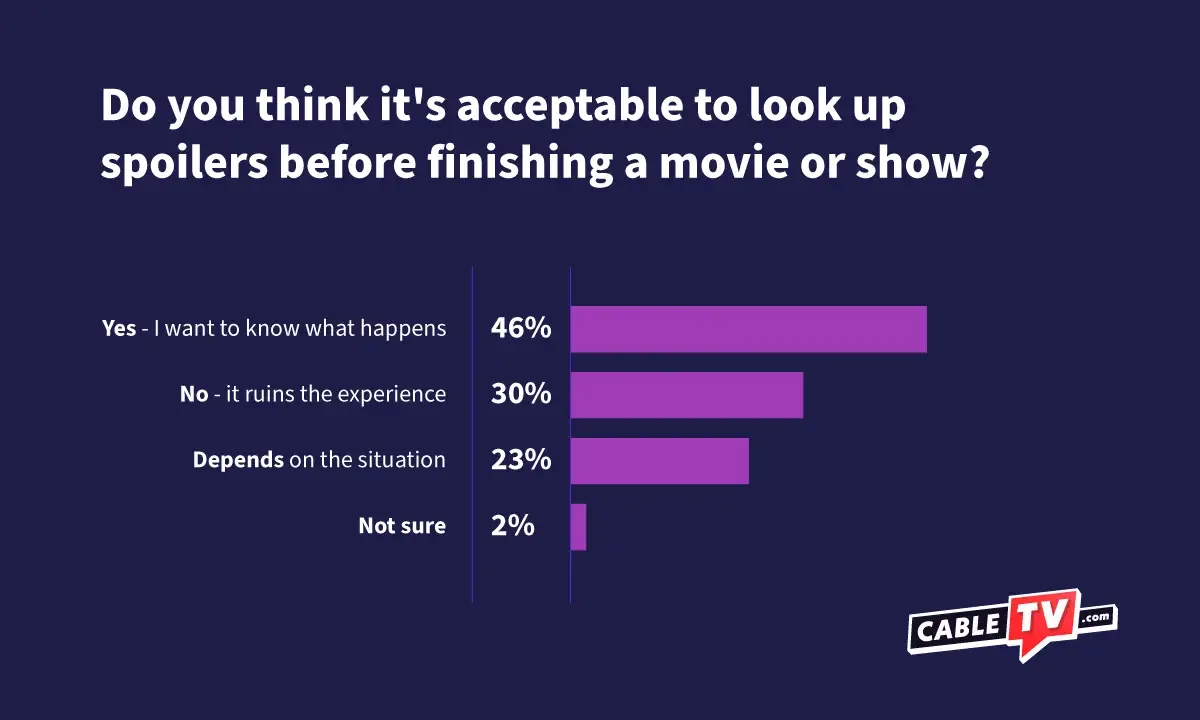
Have you ever wondered why you’ve spoiled a movie for yourself? Or why some people think spoilers feel good to know beforehand? It’s a practice some experts say is often associated with something more than “the need to know.”
Called “spoiler anxiety,” one in five people experience enough stress and anxiety during movies or TV shows that they prefer knowing the story before they experience it for the first time.
“Spoiler-seeking can also reflect deeper traits like high sensitivity, a need for control, or FOMO. Emotionally, it can be a way to pre-process disappointment or brace for impact in stories that trigger personal themes,” says Adria Hagg, L.C.S.W.
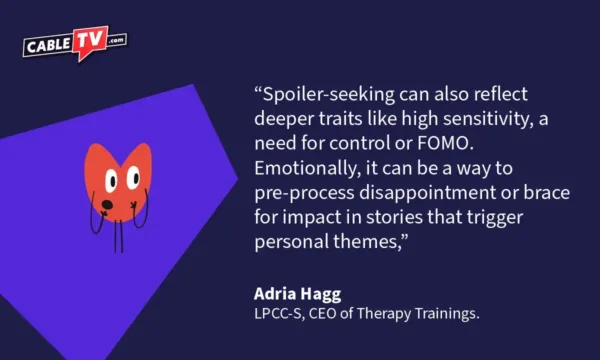
Mental health expert Brandeberry describes these surprising experiences of emotions as “emotional ambush,” which she says is “that overwhelming feeling when a story triggers unexpected grief, trauma, or intense emotions they’re not prepared to handle.” She also notes that people seeking spoilers are often those who seem to feel stories more deeply.
This is contrary to the notion that spoiler-seekers don’t care about the story. Rather, they often care so much, so intensely about the stories shown that it has a psychological effect, and they feel a need to prepare. Brandebarry also notes that compulsory spoiler-seeking acts like a coping mechanism for anxiety.
“People who feel energized and more excited about the story are using spoilers as emotional preparation. Those who feel empty or compulsively seek more spoilers are often using them as anxiety management,” adds Brandeberry.
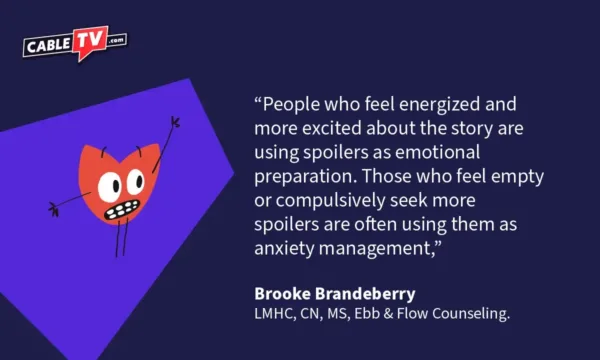
Is focusing on the reduction of stress and anxiety from movies helping or hurting our psyche’s resilience?
Brandeberry notes the practice “usually backfires” for patients “because it reinforces their inability to tolerate uncertainty.”
In other words, those seeking to reduce the effects of show-related stress and anxiety may see more benefit by reducing their spoiler searching and instead building up their tolerance for emotional events seen in TV and movies.
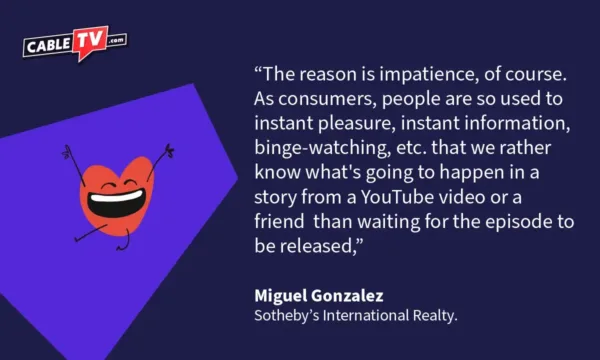
But is the psychology surrounding spoilers always that deep?
Rather than making associations with other mental health issues, some experts believe that the appeal of spoilers is explained by time and money investment, or impatience and constant information dependence.
Barna Donovan, Professor of Communication and Media Studies at St. Peter’s University in Jersey City, says that spoiler-seeking audiences “might not want to be blindsided by genre-deconstruction or any sort of subversion of expectations after they invest their time and/or money in that film. Some fans, simply, want to know that they’re getting what they paid for.”
Still, the instant gratification of “needing to know” remains a predominant explanation for seeking out spoilers.
Aside from the potential psychological effects, positive or negative, of spoiler-hunting, are Americans right in thinking that spoilers kill the vibe?
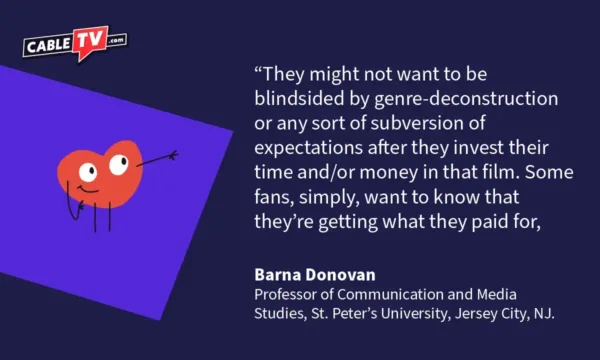
Do spoilers “ruin the fun” of TV shows and movies?
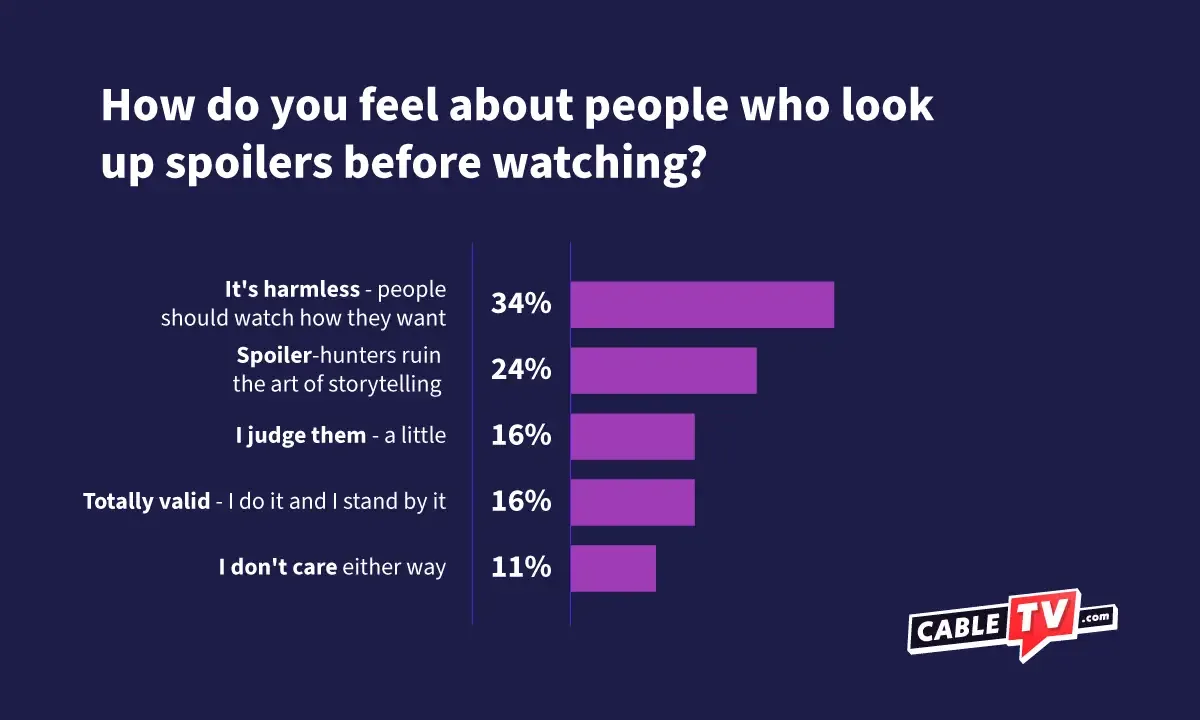
In short, no—or at least not as much as you may think.
According to several studies, spoilers can actually enhance the experience for some people or in some situations. Things like why people enjoy a movie count more than the actual “spoiling.” For instance, people with a higher “need for cognition” were more frustrated by spoilers, and people who were given information about a story’s theme enjoyed spoilers more than those who had no context.
Mental health expert Matt Grammer, L.P.C.C.-S., CEO, Therapy Trainings, says, “Studies have revealed that spoilers don’t always detract from enjoyment; in fact, they can sometimes make it better. Knowing the conclusion allows viewers to concentrate less on narrative twists and more on the storytelling technique, character growth, or deeper themes.”
Hagg echoes this sentiment and adds, “It’s similar to rewatching a favorite movie—it’s comforting.”
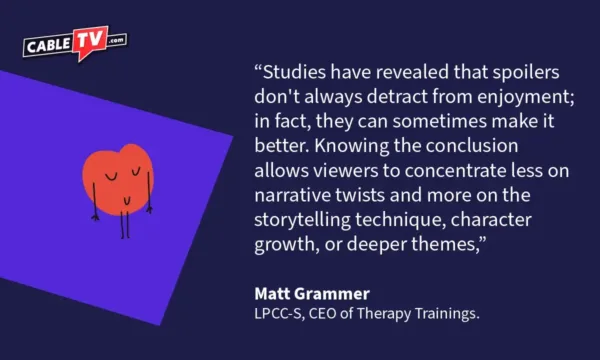
Though nearly a quarter (24%) of our respondents think spoilers ruin the twists and turns of a story, and 16% say they judge those look up spoilers, over a third of respondents said they had a “live and let live” approach to spoilers. And for better or worse, 16% of Americans say they stand by their decision to look up spoilers.
Still, others see a pre-spoiled movie as an opportunity to enjoy the movie at different levels and in different ways (and without the extra stress).
If you’re on team “Strictly No Spoilers,” think of it like this: When you rewatch your favorite shows or movies, with the expectation already set, you can appreciate different aspects and depth and feel more relaxed while following a repeated, familiar plot.
And if you’re team “Pro Spoilers”—keep it to yourself, please.
Methodology
This survey of 1,000 Americans was conducted using Pollfish in July 2025. The survey data was post-stratified to accurately reflect the U.S. population.

